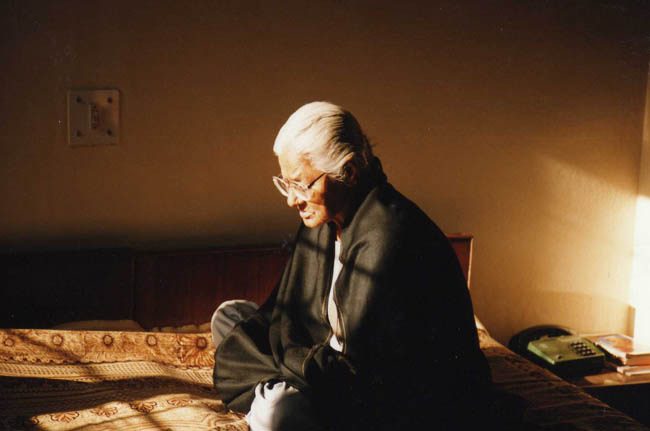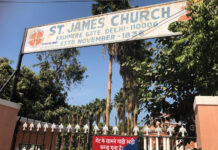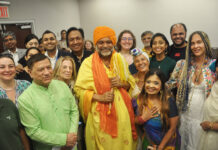By Ashok Bhargava
VANCOUVER: Mother’s Day is a day for many people to show their appreciation towards mothers and mother figures worldwide. It is an annual event but is held at different dates in the country.
It is a celebration honoring the motherhood, maternal bonds, and the influence of mothers in society. It is the day when we acknowledge our mothers’ contribution in our lives and pay a tribute to them, often with flowers, chocolates and gifts.
The traditional practice of honoring of motherhood is rooted in antiquity. Ancient rites had strong symbolic and spiritual overtones, as societies tended to celebrate goddesses and symbols of motherhood, rather than actual mothers. Objects of adoration ranged from mythological female deity, to a holy river like the Ganges, a holy temple or a church.

For thousands of years, Hindus have been celebrating a ten-day festival called Durga Puja by honouring and worshipping the divine mother in early October. Durga is a personification of feminine supremacy as well as creative energy and she represents strength, valour, gallantry and courage. She is the divine mother who protects people from evil. Hindu scriptures credit mother as a goddess, the very essence of human race. Honouring Durga Mata is also an occasion for family reunion and rejuvenation, and a celebration of traditional culture and customs.
Like Hinduism, Buddhism also honours mother dearly. The Buddha said, “Even at the risk of her own life, a mother always loves and protects her child. So let all men cultivate love without measure towards their mothers.”
Mothers occupy a very special place in the Sikh faith too. Guru Nanak, the founder of Sikhism, said, “We must honor the women who gave birth to the prophets, the gurus, and devotees of all faiths.”
Ancient Egyptians celebrated a mother deity of Goddess Isis during spring time annually. Cybele from Phrygia in ancient Anatolia (modern Turkey) and Rhea from Greece were worshipped and celebrated mother goddesses.
By the 16th century, ancient Roman religious and cultural traditions in Europe gave way to the spread of Christianity. In the 17th century, a clerical decree in England broadened the celebration from one focused on the church and the Virgin Mary (mother of Christ) to the real mothers referring to the occasion as “Mothering Day” held on the fourth Sunday of Lent.
In our times, Mother’s Day – as we know it – came about due to efforts of Anna Jarvis of Philadelphia in the US. She campaigned for the observance of Mother’s Day as a remembrance of her mother, who died in 1905 and who had, in the late 19th century, tried to establish “Mother’s Friendship Days” as a way to heal the scars of the Civil War.
It was in 1910, West Virginia became the first state to recognize Mother’s Day. A year later, nearly every state officially marked the day. In 1914, President Woodrow Wilson officially proclaimed Mother’s Day as a national holiday to be held on the second Sunday of May.
Now Mother’s Day is celebrated in India as a time to reflect on the importance of mothers in their life. It is a time to acknowledge the pain, hardship and sacrifice a mother has to go through to raise a child. It is a day to say a big thank you to mothers for being a selfless guide and an inspiration to us. In India, some people make a meal for their mothers so that she can have a day of rest from the kitchen. Some people send cards or give gifts to appreciate their mothers. The whole idea of celebrating is to make her feel important on that day.
My mother passed away many years ago, but I still remember her on Mother’s Day and that day to reflect on the stories she told and the lessons she taught us. To me, she is as important as Durga, Isis, Cybele, Rhea or the Virgin Mary have ever been. Here is a short poem to pay tribute to the memories of my mother:
Early morning, the cow’s moo was a wake-up call for her to get up.
Early morning, she reignited dormant embers in the charcoal ashes, churned the milk-curd in a clay pot, separated cream and buttermilk for the family breakfast.
Early morning, she smelled the fresh air of dawn mixed with aroma of cow-chip fire burning with thick smoke offering incense to gods.
Early morning, she walked
on the cool green grass
covered with dew drops,
whispered devotional songs on her way to the temple.
Early morning, she sat cross-legged
within warmth of a coal stove Chulla,
for she was happy and waiting for her children
to wake up to the smell of pan fried parantha-bread
and fresh home-made buttermilk
to fill the house with noise, love and joy.
I have missed you so much Beeji since you were taken away. I remember everything about you and wish you were here today. If I could see you one last time, you know what I would do: release all my emotions and say mom, I LOVE YOU!
[Ashok Bhargava is president of Writers International Network (WIN) Canada]
READ ALSO: Ashok Bhargava recalls childhood memories of Punjab winters









Late comment but deep from the heart.I often wonder as to why do i get tears in my eyes when ever I think of Beeji,my dear mother.Is it because she spent the evening of her life with me and my dear wife Ashi?She even honoured us by starting her last journey from my house,where all the brothers and sisters had gathered with their life parteners.What a wonderful mother who made everyone feel that she was closest to him\her!keeping this delicate balance between 8 brothers and their wives,two sisters and their husbands is a feat which only A GREAT MOTHER could do
A very emotional rememberance of our dearest mother.It is not possible to forget the sacrifice, love and affection of our beloved MOTHER.
Very well expressed sentiments filled with love & attachment to our respected mom.It is so emotional that it took me back to so many years.
Thanks .We all pay our respect to a great mom who was so special to all of us.In the morning itself,Neena was telling Mrinal that she has learnt every thing from our Beeji.